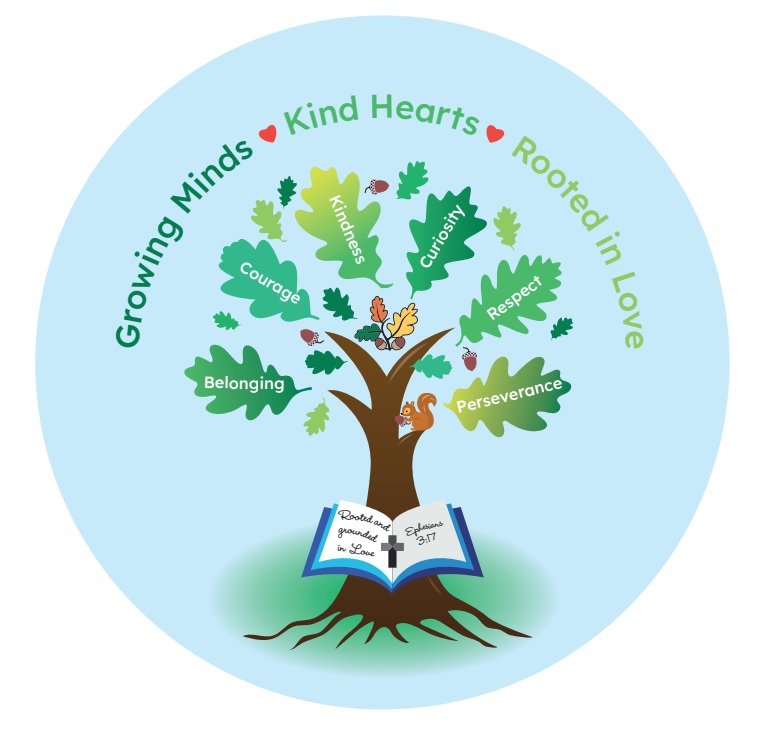Our Curriculum
Phonics and Early Reading

“Growing Minds, Kind Hearts, Rooted in Love”
At Worlingham CEVC Primary School we strive to create confident and successful readers by the end of Key Stage One. In the Early Years Foundation Stage, the children are taught the initial skills of reading and begin to develop a love of books as soon as they arrive at school. Reading books can open children’s imagination to amazing new worlds and can help to support and feed inquisitive and knowledge hungry minds.
We follow a systematic approach to teaching Phonics through a scheme called Active Learn Bug Club Phonics. Phonics teaches children to understand the link between a phoneme (the sound we hear) and a grapheme (the letter we see). The reading process involves decoding words by saying each sound and then blending the phonemes to hear the word. Phonics lessons are taught daily for between 20-60 minutes in Early Years and Key Stage One classes. These sessions follow a similar pattern each day, introducing new sounds and recapping on previously learnt sounds. Children are given opportunities in these lessons to practise reading and writing individual sounds, words and sentences. During these lessons children will read both real and pseudo words. Our Phonics scheme is divided into six Phases and is predominantly taught in Reception and Year One. In Reception children are initially taught how to orally blend in Phase One, this involves listening to an adult break a word into individual sounds before the child blends these together to hear the word. In Phase Two children begin to learn individual sounds, they learn both to recognise these sounds and begin to write them. Phase Three continues to learn the remaining single sounds as well some digraphs (two letters making one sound) and trigraphs (three letters making one sound). Phase Four teaches children the concept of consonant clusters, such as fl and sp. During this phase they are also introduced to polysyllabic words. In Phase Five the children will learn alternative spellings (graphemes) for sounds (phonemes) they have previously learnt. Phase Six is a short phase which focuses on prefixes and suffixes. Please see the attached Phonics Programme Progression document. During each phase the children will also be introduced to a range of high frequency words, these are words which regularly appear in reading but can not be sounded out, for example the.
At the end of Year One the children take part in the National Phonics Screening Check. This involves the children reading a selection of both real and pseudo words. Children who do not pass their screening check will retake this in Year Two. Any children who do not pass in Year Two will receive extra Phonics support in Key Stage Two.
In addition to daily phonics, children in the Early Years Foundation Stage and Key Stage One read to an adult every week. They read a high quality, decodable book based on the phonics phase being taught. These books include both fiction and non-fiction. They include the sounds and high frequency words the children have been recently focusing on in class. Children also take part in weekly library sessions where they are able to take home a library book which can be shared with their families. Teachers also read stories from a wide range of high quality, age-appropriate texts at every opportunity in class.

